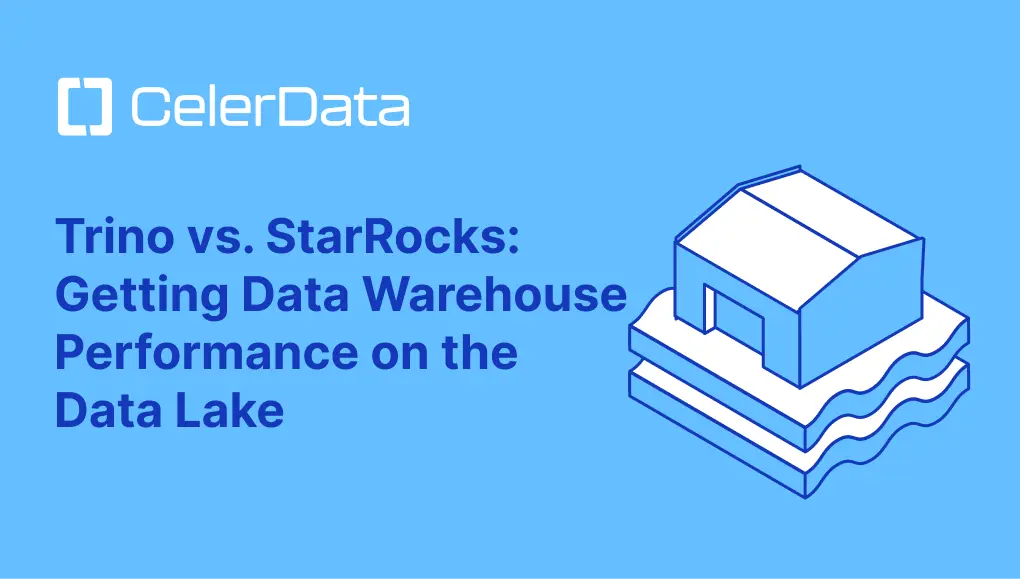
Data Overload

Join StarRocks Community on Slack
Connect on SlackWhat Is a Data Overload
Definition and Explanation
Data Overload occurs when the volume of information surpasses the ability to process it effectively. The digital age has amplified this issue, with platforms like TikTok and Instagram contributing significantly. Users often encounter vast amounts of data daily, leading to confusion and stress.
Characteristics of Data Overload
Data Overload manifests in several ways. Individuals may feel overwhelmed by the sheer quantity of information. The inability to discern relevant data from noise becomes a common challenge. Decision-making processes slow down due to excessive data inputs.
Common Scenarios of Data Overload
Data Overload frequently appears in various scenarios. A global travel company might struggle with managing customer data efficiently. Migrating to Dynamics 365 can streamline data management. Gen-Z faces Data Overload through constant social media updates. TikTok and Instagram serve as primary sources of information for this demographic.
Impact on Individuals and Organizations
Data Overload affects both individuals and organizations. The consequences can be profound and far-reaching.
Psychological Effects
Individuals experience psychological effects due to Data Overload. Stress levels increase when faced with too much information. Mental fatigue sets in, hindering productivity. Confusion arises, making it difficult to focus on important tasks.
Operational Inefficiencies
Organizations suffer from operational inefficiencies caused by Data Overload. Decision-making processes become sluggish. Leaders find it challenging to extract valuable insights from excessive data. Data governance approaches vary across industries. A global travel company prioritizes data security and compliance. Algorithms impact information consumption, as seen in news consumption studies.
Causes of Data Overload
Technological Advancements
Proliferation of Digital Devices
Digital devices have become ubiquitous. Smartphones, tablets, and computers constantly generate data. Users interact with these devices daily. Each interaction contributes to the growing data pool. The accessibility of technology increases data production. Users now create and consume more information than ever before.
Increase in Data Generation
Data generation has skyrocketed. Social media platforms like TikTok and Instagram play a significant role. Algorithms shape content consumption. Users receive personalized feeds filled with endless information. This constant flow overwhelms many individuals. The sheer volume of data challenges effective processing.
Information Accessibility
Internet and Social Media
The internet provides vast information access. Social media platforms serve as primary news sources. Gen-Z often relies on platforms like TikTok for political news. Algorithms influence what users see. This curated content can lead to information overload. Users struggle to filter relevant data from noise.
24/7 News Cycle
The 24/7 news cycle impacts information consumption. News outlets continuously update stories. Users face a barrage of headlines and reports. This constant influx creates pressure to stay informed. Many individuals experience stress from trying to keep up. The relentless pace contributes to data overload.
Historical Context of Information Overload
Evolution of Information Overload
Early Warnings and Predictions
Scholars have long recognized the problem of information overload. In the 16th century, Renaissance thinkers expressed concerns about the overwhelming amount of printed material. The printing press revolutionized information dissemination. People struggled to keep up with the influx of books and pamphlets. The Industrial Revolution further accelerated the spread of information. Experts warned that information overload reduces the ability to focus on essential data.
Notable Contributions to the Field
Numerous scholars have contributed to understanding information overload. Alvin Toffler's book "Future Shock" highlighted the rapid pace of change. Toffler emphasized the psychological impact of information overload. Herbert Simon, a Nobel laureate, introduced the concept of attention economics. Simon argued that information consumes attention, a scarce resource. These contributions laid the groundwork for modern studies on information overload.
Comparison with Past Eras
Pre-Digital Age
The pre-digital age experienced information overload differently. People relied on newspapers, radio, and television for news. Information technology resources were limited compared to today. The pace of information flow was slower. Individuals had more time to process data. Overcoming information overload was less challenging in this era.
Transition to the Digital Age
The digital age transformed how people access information. The internet and social media platforms revolutionized communication. Information technology resources expanded exponentially. Users now face a constant barrage of data from multiple sources. Technology has made information more accessible than ever before. Reading about information overload has become essential for managing daily life. Manage information overload by prioritizing relevant data. Technology continues to evolve, presenting new challenges and opportunities.
Strategies to Manage Data Overload
Personal Strategies
Time Management Techniques
Effective time management helps you handle data overload. Prioritize tasks by importance. Allocate specific time slots for data review. Use tools like calendars and reminders. Limit time spent on social media. Focus on quality over quantity in information consumption.
Digital Detox Practices
Digital detox practices reduce stress from constant data exposure. Set boundaries for device usage. Designate tech-free zones at home. Engage in offline activities like reading or walking. Regular breaks from screens improve mental clarity. A balanced approach enhances overall well-being.
Organizational Strategies
Data Management Systems
Organizations benefit from robust data management systems. Implementing solutions like Dynamics 365 enhances data governance. Improved security and compliance ensure data protection. Streamlined processes lead to better decision-making. A global travel company successfully adopted this strategy. The company achieved compliance with European data protection regulations.
Employee Training Programs
Employee training programs enhance data handling skills. Training focuses on effective use of human resources technology. Employees learn to navigate complex data systems. Employee self-service tools empower staff to manage personal data. Continuous learning fosters adaptability. Organizations see improved efficiency and productivity.
Related Topics and Terms
Information Overload vs. Data Overload
Definitions and Differences
Information overload occurs when the volume of content overwhelms your ability to process it. Data overload specifically refers to the excessive amount of raw data. Information overload is intentionally created by the constant stream of news and social media updates. This can lead to confusion and poor decision-making. Data overload often results from the accumulation of unprocessed data. Understanding these differences helps you manage both effectively.
Interconnectedness
Information overload and data overload are interconnected. Both stem from the rapid growth of digital content. Social media platforms contribute significantly to this phenomenon. The network of digital devices constantly generates information. This creates challenges in filtering relevant content. You must develop strategies to handle both types of overload.
Big Data and Its Implications
Definition of Big Data
Big Data refers to large volumes of structured and unstructured data. This data comes from various sources like social media, sensors, and transactions. Big Data requires advanced tools for analysis. These tools help extract valuable insights. Entrepreneurs use Big Data to make informed decisions. The Uniform Resource Locator (URL) plays a crucial role in accessing Big Data resources.
Relationship with Data Overload
Big Data contributes to data overload. The sheer volume of data can overwhelm individuals and organizations. Effective detection and response strategies are essential. You need to filter and analyze data efficiently. This ensures that only relevant information reaches decision-makers. Big Data offers opportunities for innovation. However, managing it requires careful planning and execution.
Conclusion
Understanding data overload remains crucial in today's digital landscape. You must implement effective strategies for better data management. Tools like Salesforce Sales Cloud and Salesforce Einstein offer solutions to manage data efficiently. Salesforce provides a comprehensive platform for sales teams to streamline processes. ESS (Employee Self-Service) tools enhance productivity by reducing data clutter. Salesforce enables organizations to focus on essential data, improving decision-making. Attention to detail in data management ensures success. The future of data management lies in leveraging cloud technologies. Salesforce continues to innovate, offering complete solutions for sales and data management.



.jpg)